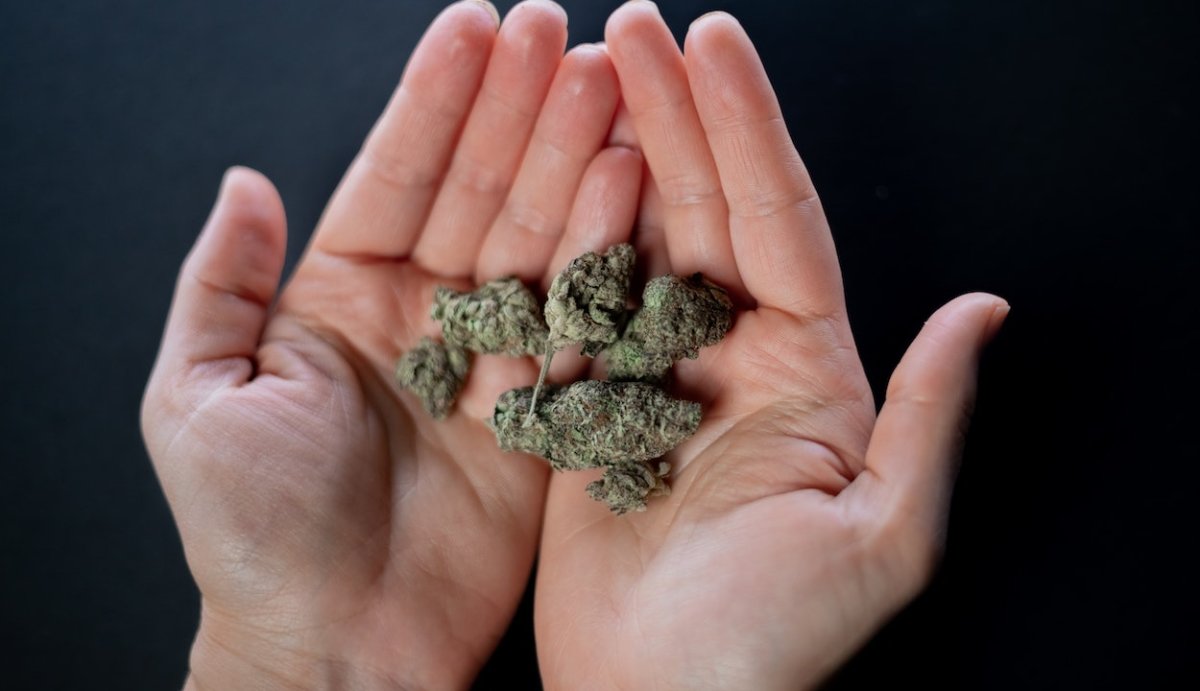Your Cart is Empty
FREE SHIPPING ON ALL ORDERS $75+
Delta-10 is one of many cannabinoids introduced since hemp legalization in 2018. Its production makes it a federally legal alternative to traditional THC, which is still tightly regulated.
Table of Contents
Delta-10 is Made From Hemp
How is Delta-10 Made?
How is Delta-10 Extracted?
Finding Legal Delta-10 Near You
Resources
Delta-10 is produced through a process called isomerization, where CBD is converted into Delta-10-THC. Here's a simplified overview of the process:
Delta-10 is usually made from hemp to stay within federal regulations, as making it from marijuana could classify it as a Schedule I substance. To ensure legality and safety, always verify the source of your Delta-10 product and look for high-quality brands that provide third-party lab testing.
Delta-10 itself is not directly extracted from hemp; instead, it is made from CBD through isomerization. The extraction of CBD from hemp involves several methods:
Once CBD is extracted, it is refined into CBD isolate, which is then used to create Delta-10-THC products. Read Hemp and CBD Extraction Methods to learn more about the various extraction techniques and how they differ.

We mentioned that Delta-10 was made through a process called isomerization, but what does that mean?
Well, Delta-10 is an isomer of CBD, which means both molecules have all the same components just arranged in a different order. Isomerization is the process of exposing the compound to an acid or another chemical, which shifts the components around to transform one compound into another.
This method was patented by prominent cannabinoid researcher, Raphael Mechoulam, as a way to work around the low Delta-8-THC levels in cannabis when researching the effects of the compound on various conditions. Delta-8-THC existed as a CBD isomer, meaning the CBD molecule could be rearranged to create Delta-8-THC. Over time, this process became more common place in hemp manufacturing, leading to a slew of new cannabinoid formulations.
The same process used to convert CBD into Delta-8-THC is used to convert CBD to Delta-10, except a different chemical is used for each procedure. After the conversion process is through, the extract undergoes a series of different refinement methods to remove any leftover CBD, residual solvents, or unwanted chemicals that could contaminate the final batch. This final step is why it's so important to find a brand that uses a third party lab testing process to verify the absence of all contaminants.
Although the processes are similar, the process used to make Delta-10 from CBD is a bit more involved than the process used to make Delta-8. In general, Delta-10 is more difficult to make which is why many Delta-10 products on the market actually contain both Delta-10 and Delta-8.
Still, Delta-10 can be used like any other hemp extract to make a variety of edibles, flower, vapes, oils, and more.
Once Delta-10-THC is extracted and refined, it can be used to create various products. Here’s how Delta-10 extract is utilized in different forms:
Delta-10 Distillate: This concentrated form of Delta-10 is often used in creating a range of products, including Delta-10 vapes. The high potency of distillate makes it ideal for precise dosing and potent effects.
Delta-10 Isolate: Known for its purity, Delta-10 isolate is used in edibles, tinctures, and capsules. It offers a pure Delta-10 experience without other cannabinoids.
Edibles: Delta-10 extract can be infused into edibles such as gummies and chocolates. These products provide a discrete and long-lasting way to consume Delta-10.
Vapes: Delta-10 vape products are popular for their fast onset of effects. The extract is mixed with vape-friendly carriers and flavors to create a smooth and enjoyable vaping experience.
Oils and Tinctures: Delta-10 can be used in oils and tinctures for flexible dosing. These products allow for easy sublingual consumption and can be added to foods or beverages.
Topicals: Although less common, Delta-10 can also be incorporated into creams and balms for localized effects.
By utilizing Delta-10 extract in these various forms, manufacturers cater to different preferences and needs, offering consumers a range of options for enjoying the benefits of this cannabinoid.
Since Delta-10-THC can be made through various methods, consumers must be careful to ensure that the Delta-10-THC they buy is made through legal cannabinoid extraction techniques.
At Vida Optima, all of our hemp THC products are 100% Farm Bill compliant and are accompanied by lab tests that prove label accuracy. For legal hemp THC products you can buy online, check out our entire Elev8 collection.

Delta-10 THC is typically synthesized from CBD through a chemical process involving isomerization. This process transforms CBD into Delta-10 THC, which is then purified and formulated into various products.
Delta-10 THC is usually extracted using a process similar to that used for other cannabinoids, involving solvent extraction or CO2 extraction methods. The extracted material is then refined to isolate Delta-10 THC.
Delta-10 THC is chemically similar to Delta-8 and Delta-9 THC but is considered less potent than Delta-9. It offers effects that are milder compared to Delta-9 but stronger than Delta-8.
Delta-8 THC is known for its milder, more relaxed effects, while Delta-10 THC is often reported to be more uplifting and energetic. Delta-10 is generally considered to have a clearer and more focused high compared to Delta-8.
Delta-9 THC is the strongest among the three, providing the most intense psychoactive effects. Delta-10 THC is less potent than Delta-9 but stronger than Delta-8 THC, which is known for its milder effects.
Delta-8 THC is not necessarily "worse" than Delta-9 THC; it is simply less potent and offers a milder high. Delta-8 may be preferred for those looking for less intense psychoactive effects and fewer side effects compared to Delta-9.
Comments will be approved before showing up.



